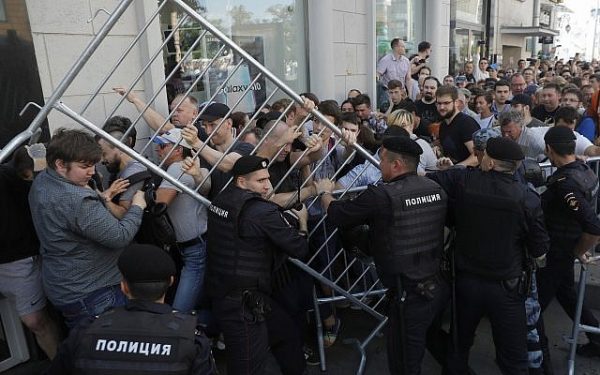
The arrest and detentions came following a protest to demand that opposition members be allowed to run in a local election. Authorities had declared it illegal and sought to block participation, but several thousand people turned up in one of the longest and most determined protests of recent years.
Chants of “Russia without Putin” and “Putin resign” echoed through central Moscow as guardsmen clad in riot gear beat back protesters with batons and roughly detained people.
At least one woman and a man appeared to have suffered serious head wounds.
Today’s events showed how activists and especially younger people remain intent on pressing to open Russia’s tightly-choreographed political system to competition.
Jailed opposition leader, Alexei Navalny had called the protest to persuade officials to allow opposition-minded candidates to run in a September 8 election. But authorities said that they were barred because they failed to collect sufficient genuine signatures in their support.
The opposition has no seats in parliament and is starved of air time on state TV where many Russians still get their news.
Opinion polls in the past have shown support for Navalny, a lawyer and anti-corruption activist, only in the single digits. But backers note he won almost a third of the vote in a 2013 Moscow mayoral race and say his movement could build momentum in the Russian capital if allowed to compete fairly.
Though Putin’s approval rating is still high at well over 60 percent, it is lower than it used to be due to discontent over years of falling incomes. Last year, the 66-year-old former KGB intelligence officer won a landslide re-election and a new six-year term until 2024.